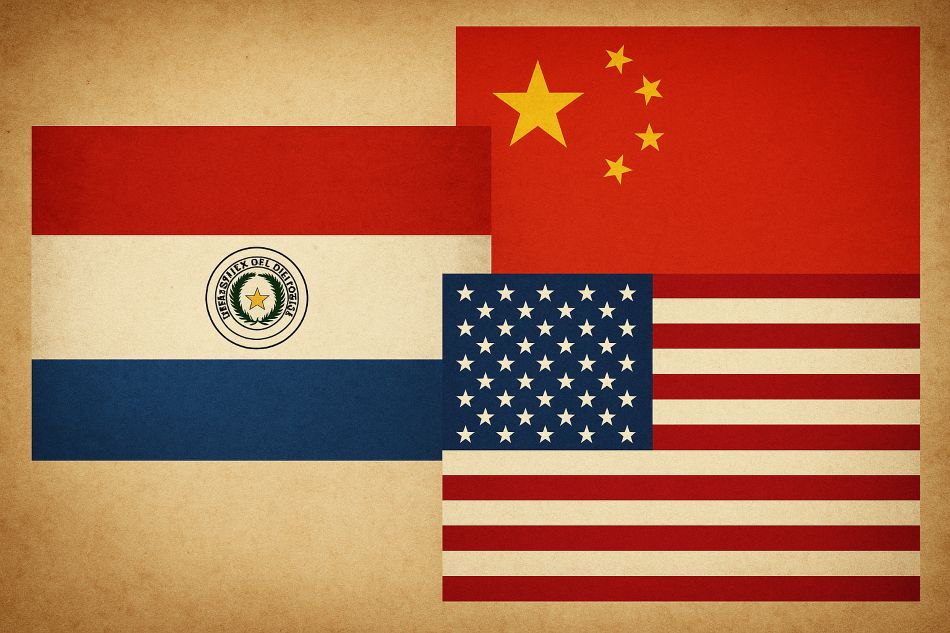
Paraguay’s 5G tender illustrated yet again how geopolitics and China-US rivalry are affecting the Latin American telecoms sector.
Citing security concerns in an attempt to soothe US concerns and reassure its longstanding ally Taiwan, Paraguay’s regulator Conatel issued tender specifications that effectively exclude suppliers such as Huawei or ZTE.
Because of the restrictions on Chinese equipment, only America Movil (Claro) and newcomer Nubicom submitted bids. Tigo (Millicom) and Personal (Telecom Argentina) did not show up.
Nubicom is an Argentine fiber optics and wireless operator based in Salta province.
Telecom Argentina justified its decision not to participate in the tender by claiming the equipment rules “violate the principle of technological neutrality.”
“The first requirement is that the equipment to be installed must be manufactured in countries with which Paraguay maintains formal commercial and diplomatic relations. The second is the obligation for the equipment manufacturer to hold a specific certification called SCS 9001, a certification that no manufacturers currently possess, and without the acceptance of other more widespread industry certifications such as ISO or NESAS,” the telco said in a statement.
“This limits the number of supplier companies with which operators are already working in Paraguay, in the region and globally, using qualification criteria that are neither technological nor economic, and that are not practical in this type of bidding process,” Telecom Argentina added.
The US embassy in Paraguay, for its part, issued a statement this week praising the country’s handling of the 5G auction. “We highlight and support this initiative by the government of Paraguay, which prioritizes user security and privacy by developing 5G networks with trusted providers.”
Meanwhile, in Costa Rica, in January, each of the two private mobile carriers operating in the country, Liberty and Claro, bid and secured a block in the 700MHz band despite a cybersecurity regulation vetoing Chinese equipment.
In Panama, the US government and Panama’s public security ministry announced in June joint work on an US$8mn project to replace telecoms equipment from Huawei, a process that in some European markets has become known as rip and replace.
“Once the project is completed in approximately two years, Panama’s security institutions will have the ability to control and manage their own telecommunications systems, strengthening shared security and reinforcing the relationship between the United States and Panama,” the US embassy said in a release.
China and a tightrope
The Paraguayan 5G ban comes despite increased investments by Huawei in the country.
In March, the company expanded its presence with the opening of its first physical store in Ciudad del Este.
The initiative, according to Huawei, is part of a strategy to build up its presence in Latin America, offering access to its latest products.
Until the auction rules were finalized and the ban on Chinese equipment took effect, Paraguay had been trying to balance its ties with China, the US and Taiwan. Officials discussed the tender with US Secretary of State Marco Rubio in February. Yet one year earlier, when the rules were not defined, Paraguayan President Santiago Peña met Huawei executives during the Mobile World Congress in Barcelona to seek more telecoms investment.
Huawei has also partnered with Paraguay’s education ministry on broadband projects and youth training programs.
At the same time, Paraguay remains the only South American nation with diplomatic ties to Taiwan, which China considers a breakaway province. Elsewhere in the region, Guatemala, Belize, Haiti and some Caribbean nations also recognize Taiwan.
In March last year, a delegation led by Paraguayan ICT minister Gustavo Villate traveled to Taiwan to meet authorities and technology firms, as part of efforts to attract investment and foster IT partnerships.
This week, Peña met with Jorge Duarte, dean of Universidad Politécnica Taiwán-Paraguay, along with José Chih-Cheng Han, ambassador of the Republic of China (Taiwan), among others. At that meeting, it was confirmed that the second Semiconductor Technological Forum will take place on September 19-21 in Ciudad del Este, without Chinese participation.
